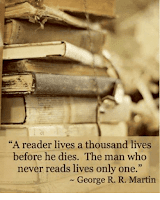As I near completion of my next book (due to come out at the beginning of 2022), its time to think about cover art. Since this is part of a series, I have to consider the other covers. Here's the thing. The Hoffman Grove Series didn't start out with a series map. It started out "accidentally" at the advice of my "then editor."
The covers don't look anything alike.
 |
 |
 |
| A | BN | iB | K | A | BN | iB | K | A | BN | iB | K |
They're all small town (Hoffman Grove), and they all revolve around a family of friends. That's the unifying theme. Since it's been a while since the last Hoffman Grove was written (I got swept away with the Epitaphs, and then with the Hillendale novels), I thought I ought to check to see what covers for romance/romantic suspense currently look like for inspiration.
Holy cow. My options appear to be: 1) Shirtless man. 2) Cartoony. 3) Some sort of vague nothingness that doesn't really say anything about the book. Ugh.
Stepping back. Okay. I can work with this. I found an image that I like that could work, especially given the choices above. It is NOT 1) a shirtless man. 2) Cartoony. I wouldn't exactly describe it as vague nothingness, but it is more "moody."
Except I also need a title. So far? Nothing. My critique partner suggested "Breaking the Mold," which might work. What's it about?
Kayleigh returns to Hoffman Grove for her ten-year high school reunion, eager for a reboot of her life. She’s breaking away from family expectations and chasing her own goals now. But some things never change. The false friends she had back in the day are eager to repeat old patterns. She’s onto them this time, and new friends rise to the occasion— including Rafe, who volunteers to be her pretend boyfriend for reunion weekend. We all have to carry our own baggage, and if Rafe wants to move out of the “pretend boyfriend” zone, he'll have to let Kayleigh carry hers.
Spark any ideas with you?



